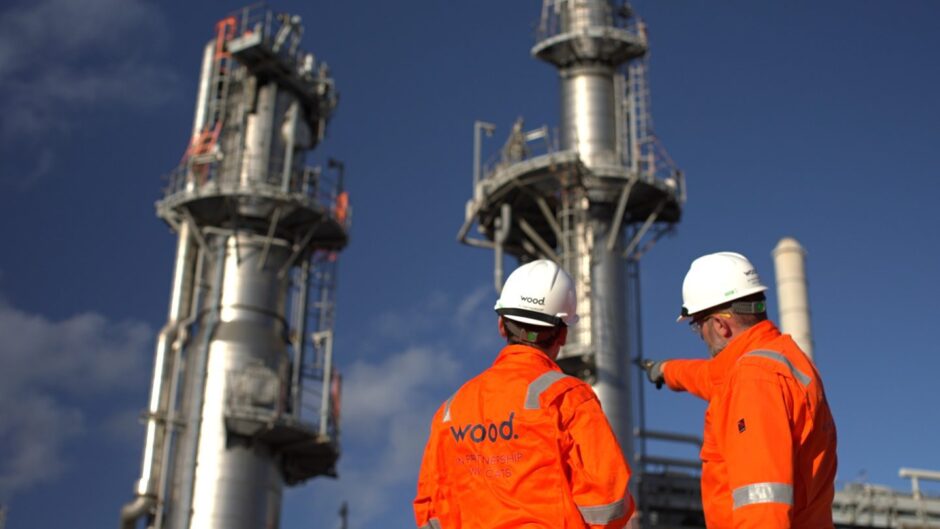
Wood, the consulting and engineering company, is well known in the North Sea for its operations and maintenance and is now leveraging its experience to support the industry to decarbonise assets as part of the drive to net zero.
As duty holder of two major gas terminals in the UK, Martin Simmonite explains the breadth of services Wood provides on-site and the great strides the company has made to decarbonise operations.
The duty holder model
What is a duty holder? A question I asked myself when I joined the team at Wood last year.
In short, it is the management of all operations, maintenance, integrity management, emergency response and engineering services on an offshore or onshore asset. It is a partnership between the site owner and the service company, who are responsible for running, operating and maintaining the site.
In the UK, Wood is duty holder at the Central Area Transmission System (CATS) terminal in Teesside working on behalf of Kellas Midstream, and the Scottish Area Gas Evacuation (SAGE) system and Beryl pipeline, on behalf of Ancala Midstream at St Fergus, north of Aberdeen, managing day-to-day operations.
As a critical part of the UK’s energy infrastructure, both terminals provide gas supply to the national grid, heating homes and powering our nation. CATS comprises a 404km pipeline in the North Sea and an onshore gas processing terminal. The facility transports and processes 9 billion SCM of gas annually, equal to 20-25% of all gas production and around 10-15% of demand in the UK.
The SAGE system transports gas through a 323-kilometre pipeline from the Central North Sea to the terminal at St Fergus, where it is processed on behalf of North Sea gas producers.
In both cases, Wood is ultimately responsible for ensuring safe, reliable and efficient operations and working in partnership with our clients as one team.
Small changes can deliver huge impact
Whilst onshore infrastructure, like CATS and SAGE, accounts for only a small percentage of the UK oil and gas industry’s emissions, these sites are still focused on decarbonisation and remain committed to the targets set out in the North Sea Transition Deal. Small changes to operations can deliver huge impact.
The team at CATS are driving a reduction in emissions across the terminal. Changes implemented by the operations and engineering teams on the ground have resulted in a 50% reduction in flaring in 2023, a staggering achievement. The site itself has one of the lowest carbon intensities of all gas terminals in the UK with 80% of onsite electricity generated from process energy and 100% of site waste is either recycled, reused or recovered.
Our people working on duty holder contracts go above and beyond original contract scopes, embedding themselves in the site, working alongside our clients as one team to make positive changes and improve site production, safety and sustainability. We see this as an area of growth for Wood and have significant North Sea asset experience to deliver the duty holder model offshore, an area we are actively pursuing.
Duty holder services may be our best kept secret, but I am committed to spreading the word of the value this brings to our clients and the important work we are implementing to decarbonise these critical assets to ensure energy security and net zero.
Recommended for you

 © Supplied by Wood Group
© Supplied by Wood Group